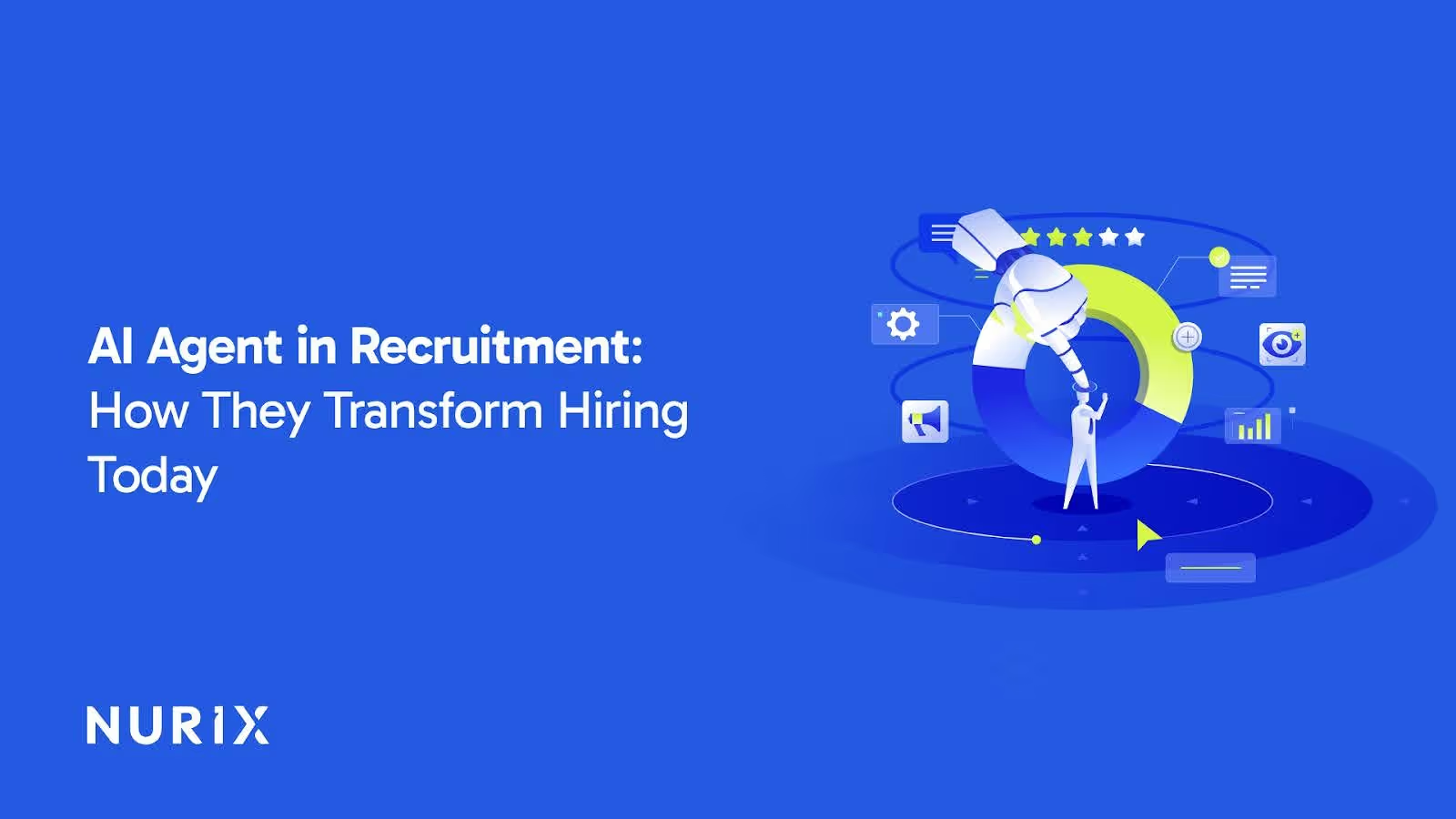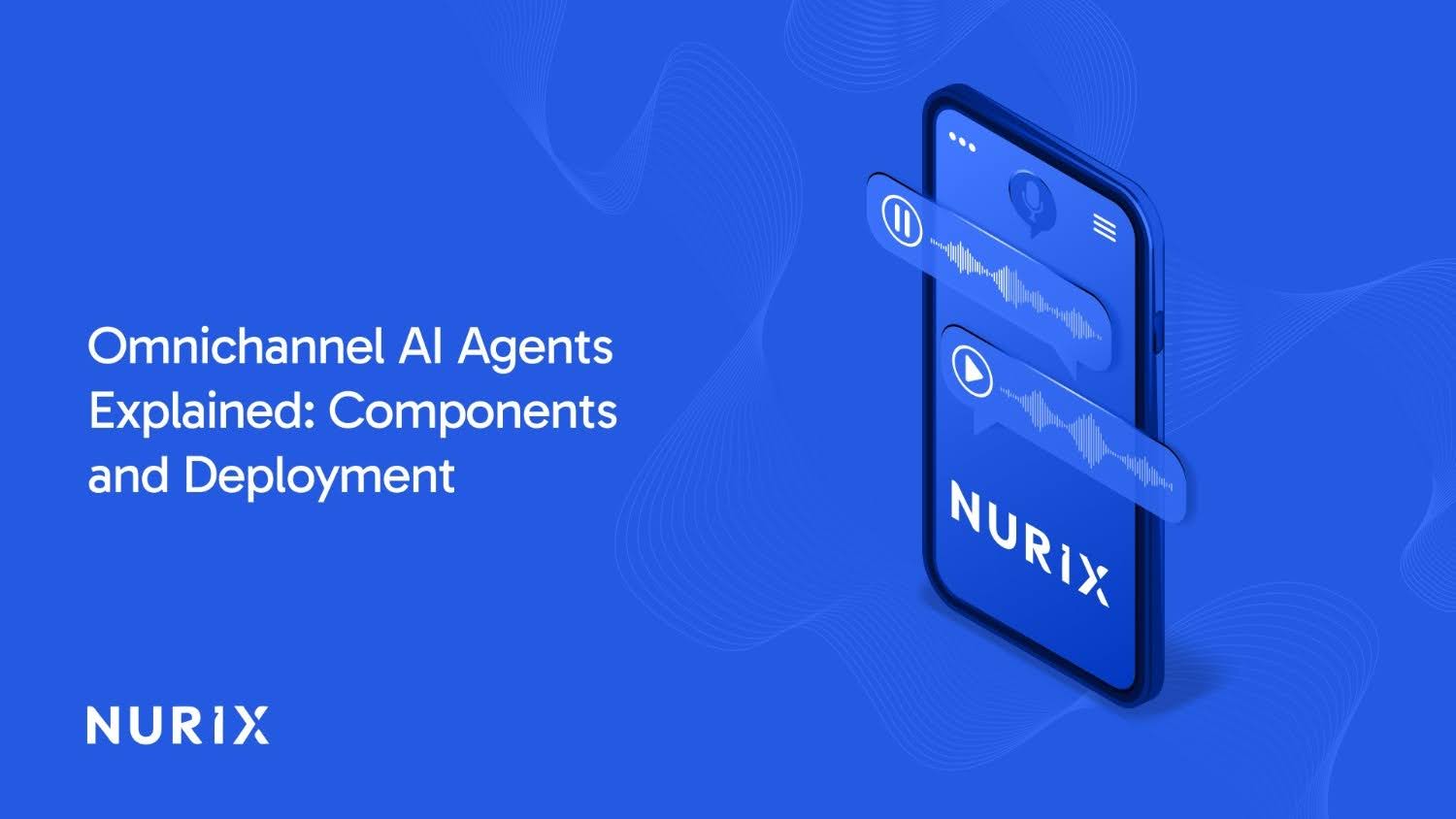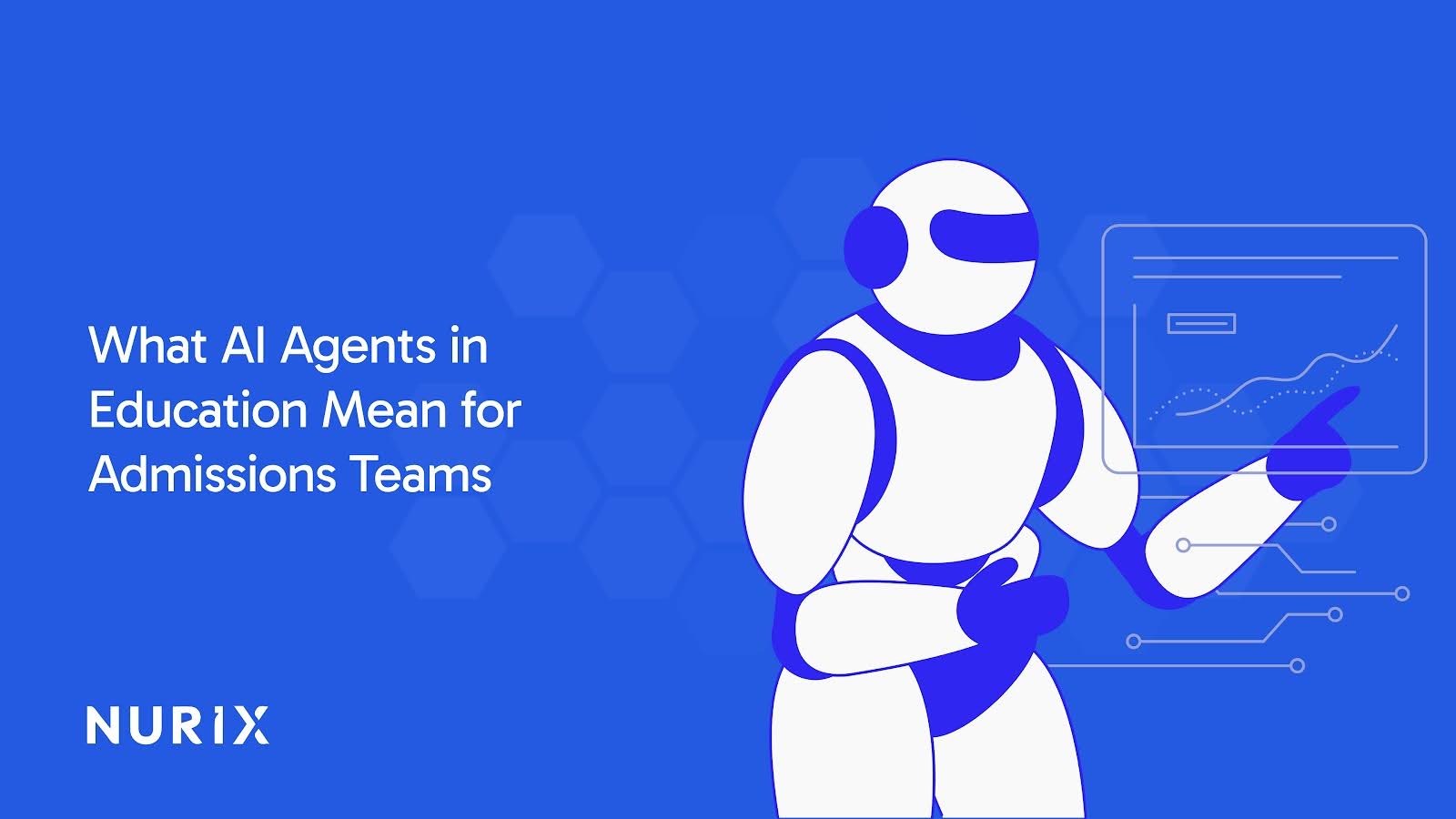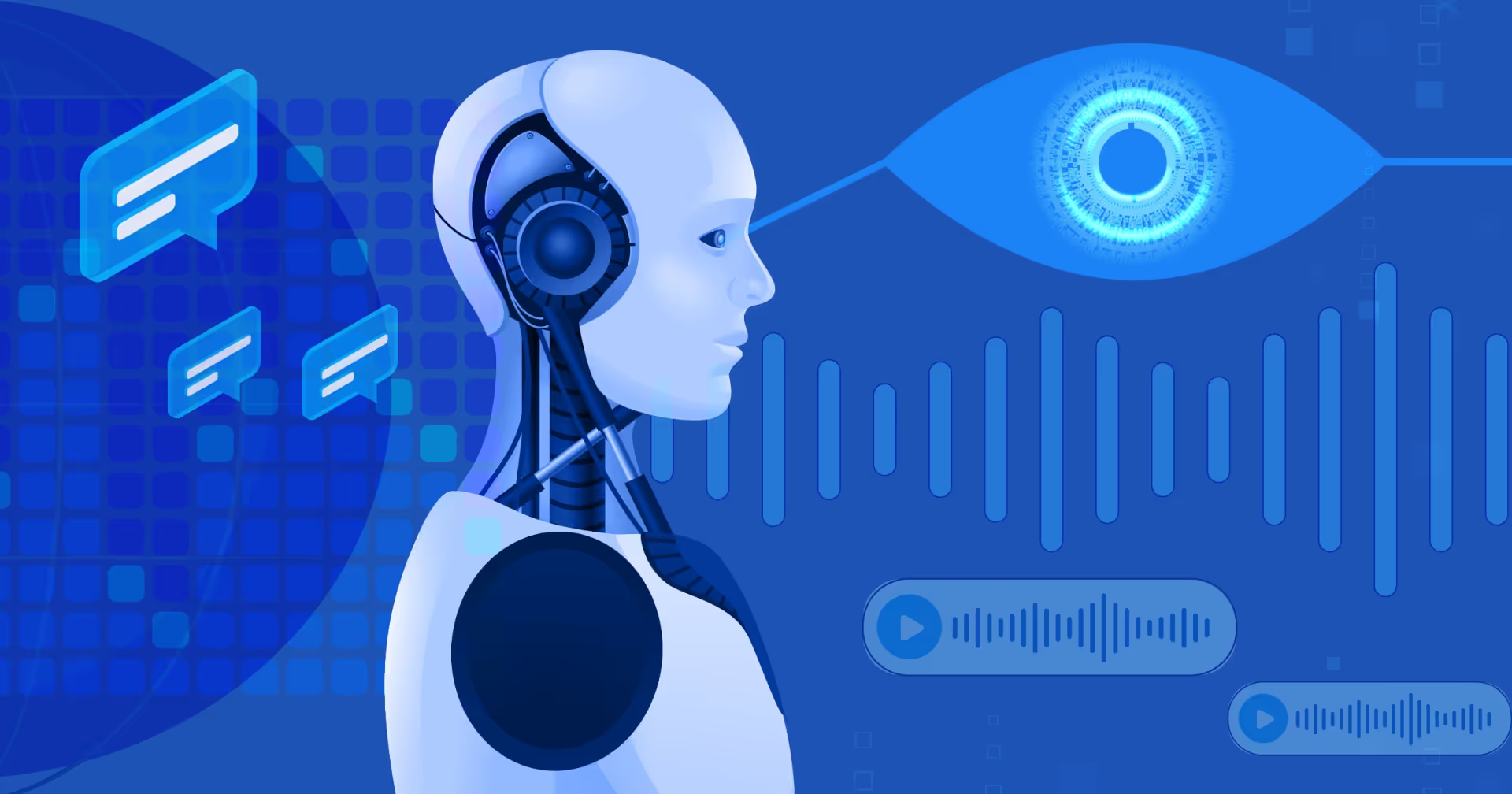AI agents in recruitment have quietly stepped into the spotlight, changing the way companies find their next great hire. With mountains of applications and resumes flooding in daily, human recruiters often face the overwhelming task of sorting through countless candidates to identify the right fit.
This is where AI agents in recruitment start to make a tangible difference, easing pressure and adding new levels of insight. By working alongside human judgment, AI agents help keep the recruitment process moving forward without sacrificing the personal touch employers strive to maintain.
This guide will examine the different ways AI agents in recruitment can be woven into various hiring stages, from sifting through resumes to scheduling interviews and assessing candidate skills.
Takeaways
- Autonomous Hiring Assistants: AI agents proactively manage recruiting tasks like candidate sourcing and interview scheduling without waiting for manual input, streamlining the entire hiring workflow efficiently.
- Enhanced Candidate Screening: Utilizing natural language processing, AI agents understand skills and experience context, identifying qualified candidates beyond keyword matches and reducing time-to-hire dramatically.
- Continuous Learning and Adaptation: These agents improve over time by analyzing past hiring data and recruiter feedback, refining their assessments to boost accuracy and candidate-job fit.
- Improved Candidate Engagement: AI agents maintain 24/7 communication, providing instant responses and personalized follow-ups that keep candidates informed and increase acceptance rates.
- Significant Time and Cost Savings: By automating repetitive tasks and speeding up screening and scheduling, AI agents reduce administrative burdens, saving recruiters several hours weekly and lowering recruitment expenses.
What are AI Agents in Recruitment?
AI agents in recruitment act as intelligent assistants that automate repetitive tasks and enhance decision-making, allowing recruiters to focus on building human connections.
- Screen resumes quickly by matching skills and experience to job requirements
- Answer common candidate queries through chat or email
- Schedule interviews without back-and-forth coordination
- Assess potential fit using data-driven insights and past hiring patterns
- Learn and adapt over time to improve hiring efficiency
Unlike traditional tools, these agents work proactively, analysing data and acting independently, making recruitment faster, smarter, and more candidate-friendly.
How AI Agents are Improving the Recruitment Process
AI agents are transforming how businesses approach hiring by automating complex tasks, improving candidate quality, and reducing bias in decision-making. These intelligent systems go far beyond simple automation tools, learning and adapting over time to deliver more accurate results and better experiences for both recruiters and candidates.
1. Resume Screening and Initial Candidate Assessment
AI-powered resume screening has revolutionized the first stage of recruitment by processing large volumes of applications within seconds. Modern AI systems use natural language processing and machine learning algorithms to analyze resumes, extracting key information like skills, experience, and qualifications while matching them against job requirements.
Studies show that companies using AI resume screening tools experience up to 75% reduction in cost per screen and can process applications significantly more effectively than human reviewers. One organization reported reducing time-to-hire from 42 days to just five days using AI screening tools, achieving an 88% reduction in hiring timeline.
Key details:
- Speed and Volume Processing: AI can scan thousands of resumes in minutes, analyzing patterns and context rather than just keyword matching.
- Improved Accuracy: Machine learning algorithms continuously learn from hiring outcomes, with 92% accuracy in predicting cultural fit and performance potential.
- Bias Reduction: When properly configured, AI screening can reduce hiring bias by up to 40% by focusing on qualifications rather than demographic factors.
2. Candidate Engagement and Communication
AI agents excel at maintaining continuous communication with candidates throughout the hiring process, providing 24/7 availability and instant responses to queries. These systems handle everything from initial inquiries to interview scheduling, creating personalized interactions that keep candidates engaged.
Research indicates that AI-driven candidate screening now accounts for over 75% of initial applicant evaluations in Fortune 500 companies. Companies using AI-powered engagement tools report that candidates are 18% more likely to accept job offers, while chatbot systems can reduce candidate screening time by up to 50%.
Key details:
- Real-time Responsiveness: AI chatbots provide instant responses to candidate questions, maintaining engagement and reducing dropout rates.
- Multi-channel Communication: Advanced systems engage candidates across email, SMS, and social media platforms with personalized messaging.
- Automated Follow-up: Intelligent agents handle interview reminders, status updates, and candidate nurturing without human intervention.
3. Predictive Analytics for Better Hiring Decisions
AI agents use predictive analytics to analyze historical hiring data and forecast which candidates are most likely to succeed in specific roles. This data-driven approach helps companies make more informed hiring decisions and build stronger talent pipelines.
Companies implementing predictive analytics in recruitment report up to 70% improvement in hiring efficiency, with algorithms achieving 25% hiring success rates compared to 10% for human-only selection processes. These systems can also predict employee retention, helping organizations reduce turnover by up to 25%.
Key details:
- Performance Prediction: AI analyzes patterns from successful employees to create benchmark profiles for future candidates.
- Turnover Forecasting: Predictive models identify flight risks and help organizations proactively address retention issues.
- Talent Pipeline Planning: Analytics forecast future hiring needs based on business growth patterns and market trends.
4 .Interview Scheduling and Coordination
AI-powered interview scheduling systems eliminate the back-and-forth communication traditionally required to coordinate interviews between multiple parties. These tools sync calendars, handle time zone conversions, and automatically send reminders to all participants.
Organizations using automated interview scheduling report saving 15 hours per week on administrative tasks, with 59% of recruiters saving between 2 to 10 hours weekly. The systems reduce scheduling conflicts by 80% and provide candidates with self-service booking options that work around the clock.
Key details:
- Multi-party Coordination: AI handles complex panel interview scheduling by analyzing availability across multiple interviewers and candidates.
- Automatic Rescheduling: Systems instantly accommodate schedule changes and update all parties in real-time without human intervention.
- Reduced No-shows: Automated reminders and continuous communication decrease interview no-shows while maintaining candidate engagement.
5. Multi-agent System Integration
The most advanced AI recruitment systems deploy multiple specialized agents working together to handle different aspects of the hiring process. These multi-agent platforms can manage everything from sourcing candidates on professional networks to conducting technical interviews and generating hiring recommendations.
Research on multi-agent recruitment systems shows they can achieve 65% improvement in hiring duration and 91% agreement with human expert evaluations, while maintaining 4.6/5 candidate satisfaction scores. These systems demonstrate how AI can transition recruitment operations into more efficient and equitable procedures.
Key details:
- Specialized Agent Roles: Different AI agents handle sourcing, screening, interviewing, and decision-making functions within integrated workflows.
- Continuous Learning: Multi-agent systems improve performance over time by analyzing feedback and outcomes from completed hiring cycles.
- End-to-end Automation: Advanced platforms can manage 90% of operations in high-volume hiring scenarios while maintaining quality standards.
AI agents are making recruitment faster and clearer by handling routine tasks and offering sharper candidate insights. To truly benefit, recruiters need new skills that help them guide AI and keep the human touch alive.
If you want to understand more about AI agents and the challenges businesses face deploying them, click on this blog: Introduction to AI Agents and Challenges in Enterprise Deployment.
What Skills Do Recruiters Need to Adapt to AI?
Recruiters are shifting gears as AI becomes a bigger part of hiring. The skills needed aren’t limited to just understanding AI tech but stretch into managing how it fits with the human side of recruitment. Having the right mix of tech know-how and human judgment is key. Here’s a look at the skills recruiters need to grow confident alongside AI tools:
- Metrics Interpretation: Recruiters must analyze recruitment data to identify patterns in hiring success, source effectiveness, and candidate quality. This involves interpreting time-to-fill statistics, conversion rates, and cost-per-hire metrics to optimize recruitment strategies.
- Predictive Analytics Understanding: Modern professionals need skills to work with AI tools that forecast hiring needs and predict candidate success. This includes understanding statistical models that assess cultural fit and job performance potential.
- Bias Recognition: Professionals must identify and address algorithmic bias in AI recruitment tools to maintain fair hiring practices. This includes regular auditing of AI outputs across different demographic groups and adjusting systems when discrimination occurs.
- Human Oversight Protocols: Teams must establish clear guidelines for when human judgment should override AI recommendations. This includes creating review processes for AI-driven decisions and maintaining accountability in automated hiring workflows.
- Process Optimization: Professionals need skills to identify bottlenecks in AI-powered recruitment workflows and implement improvements. This includes evaluating which tasks benefit from automation and which require human intervention.
- Candidate Experience Design: Modern recruiters must create personalized interactions using AI while maintaining a human connection throughout the hiring process. This includes managing AI chatbots and ensuring smooth transitions between automated and personal touchpoints.
- Cultural Assessment: Despite AI screening capabilities, recruiters must evaluate candidate fit with organizational culture and team dynamics. This requires reading interpersonal cues and assessing soft skills that algorithms cannot fully measure.
As recruiters grow into roles alongside AI, they gain valuable skills to guide these tools wisely. Still, challenges will come out that demand attention and care.
What Challenges Recruiters Could Face with AI?
AI in recruitment opens many doors, but it also brings fresh challenges that can catch hiring teams off guard. These issues often aren’t just technical glitches; they affect fairness, accountability, and the overall experience candidates receive. Here’s a straightforward look at some real hurdles recruiters face working with AI agents:
What is the Future of AI Agents in Recruitment?
The role of AI agents in recruitment is on track to shift dramatically over the next few years. What used to take a lot of hands-on effort will move toward agents handling most tasks independently, while humans focus on bigger picture decisions. Here’s a quick look at what the near future holds for AI-powered hiring:
- Full Workflow Autonomy: AI agents will independently manage complete recruitment cycles by 2027, from job posting to offer generation, requiring minimal human oversight.
- Superhuman Decision Intelligence: Advanced agents will process billions of candidate profiles simultaneously, making hiring decisions faster and more accurately than human recruiters ever could.
- Self-Improving Recruitment Systems: AI agents will continuously learn from hiring outcomes, automatically refining sourcing strategies and prediction models to increase placement success rates dramatically.
- Business Revenue Generation: Autonomous agents will proactively identify expansion opportunities, match talent to future roles, and directly drive company growth through strategic workforce planning.
- Human-AI Hybrid Organizations: Recruiters will transition from task execution to strategic oversight, focusing on final hiring decisions while AI handles all operational recruitment functions autonomously.
How Nurix AI Can Streamline Hiring Process
Nurix AI streamlines hiring by automating key recruitment tasks. It supports teams with focused screening, scheduling, and candidate communication to save time and improve outcomes.
- Applicant Pre-Screening: Nurix AI checks eligibility factors like shift flexibility, location readiness, and language skills, ensuring only qualified candidates move forward in the process.
- Interview Scheduling: The system syncs with recruiters' calendars to manage interview bookings automatically, handling large volumes without manual coordination stress.
- FAQs Handling: Instant answers to common questions about readiness, onboarding, or application steps reduce recruiter workload while escalating complex issues to human teams.
- Career Portal Integration: The AI fits naturally into existing career pages and connects with ATS and CRM systems to automate tasks without changing current workflows or platforms.
- Impact Metrics: By automating conversations and scheduling, Nurix AI saves recruiters 15–20 hours weekly, triples interview speed, and cuts early candidate drop-offs by 25%.
Final Thoughts!
One often overlooked aspect of AI agents in recruitment is how they can deepen the understanding of candidates’ softer skills and cultural fit, not just their resumes. These tools are increasingly capable of capturing more nuanced signals, like communication style or problem-solving approach, from interactions and assessments. This means that hiring decisions can be more balanced, considering qualities that often make the biggest difference in team success.
At Nurix AI, we focus on designing recruitment solutions that put this human side front and center while streamlining the process. Our technology works quietly alongside hiring professionals to reveal insights that might have gone unnoticed otherwise, helping companies make decisions they can feel confident about.
If you're ready to see what smarter hiring looks like, let’s start a conversation today!











